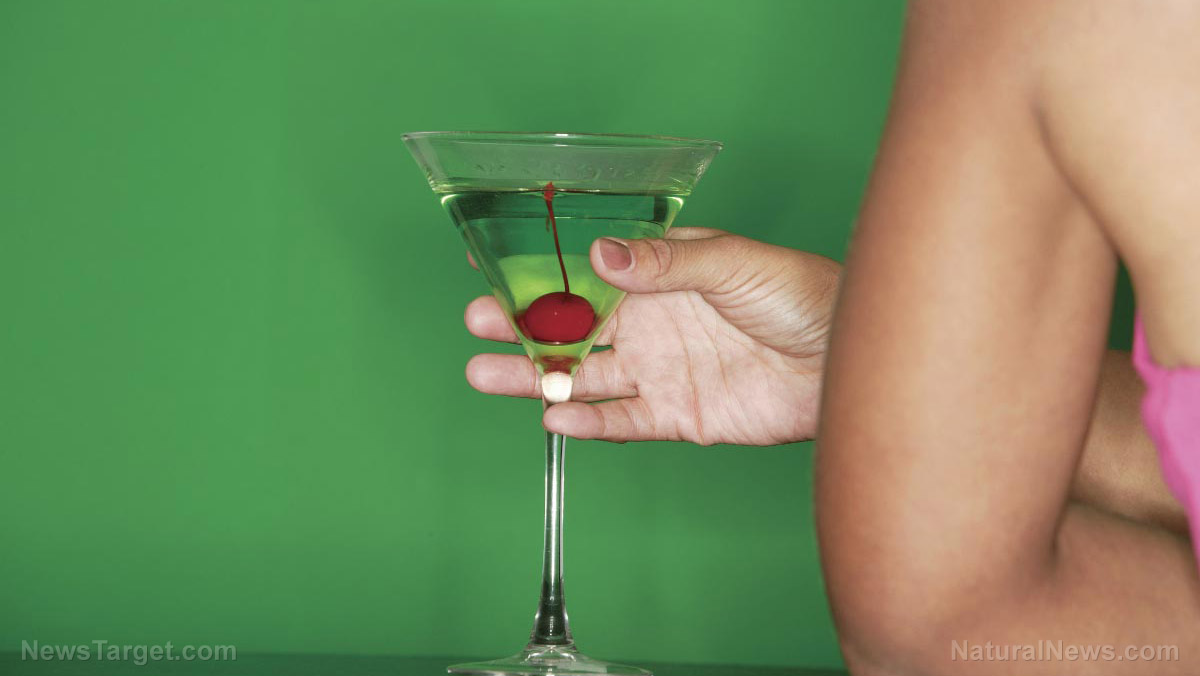We live in a nation of drug addicts, but many don’t realize the dangers of their favorite liquid variety. A study into Biblical drinking would be eye opening form many who call themselves Christian, as wine then had compounds in it that helped with sanitizing water, and was mixed into water diluting it greatly. Many then actually cooked down the wine evaporating the alcohol content to make a paste that could then be added to water for flavor and sanitation. When the Bible talks about strong drink in a negative light, it’s talking about those that drink undiluted wine. What we have today is much more stronger than that strong drink of the Bible. John MacArthur did a couple sermons on it where he illuminates the topic much further.
By Ava Grace

- A new study confirms that even moderate alcohol consumption (seven drinks per week) increases the risk of brain lesions linked to dementia, challenging the notion that light drinking is harmless. Heavy drinking (more than eight drinks weekly) raises the risk by 133 percent.
- Researchers identified two key markers of brain damage caused by drinking, namely, tau tangles (linked to Alzheimer’s) and hardened blood vessels in brain tissue, which impair blood flow and contribute to cognitive decline.
- Heavy drinkers lived 13 years shorter on average, often avoiding chronic diseases like hypertension and stroke simply because they died early.
- The study’s definition of heavy drinking (eight drinks/week) is conservative: top U.S. drinkers average 74 drinks weekly, suggesting real-world risks are even higher.
- Alcohol’s historical “health benefits” myths (e.g., red wine for heart health) are debunked. Experts now recommend reducing intake, tracking consumption and recognizing dependency signs, as alcohol is a leading preventable cause of cancer and dementia.
For decades, public health officials have debated whether moderate alcohol consumption is harmless or even beneficial. But a groundbreaking new study confirms what skeptics have long suspected: No amount of alcohol is safe for the brain.
In a paper published in Neurology, researchers from the University of Sao Paulo Medical School found that even seven drinks per week – long considered “moderate” drinking – significantly raises the risk of brain lesions linked to dementia. Heavy drinkers face even starker consequences, dying an average of 13 years earlier than abstainers.
The study examined brain tissue from autopsies of 1,781 individuals, averaging 75 years old at death. Researchers identified two key markers of brain damage: tau tangles (abnormal protein clumps tied to Alzheimer’s) and hyaline arteriolosclerosis (a hardening of small blood vessels that restricts blood flow, leading to brain lesions.)
Heavy drinkers (eight or more drinks weekly) were 133 percent more likely to have these lesions than nondrinkers. Even moderate drinkers (seven or fewer drinks) faced 60 percent higher odds, challenging the myth that light drinking is harmless. (Related: Moderate Alcohol Consumption Shrinks Brain.)
“Drink moderately” no longer safe
The study’s threshold for “heavy drinking” – eight drinks weekly – is conservative. U.S. guidelines define it as more than 15 drinks per week for men, and surveys show the top 10 percent of American drinkers consume 74 drinks weekly — over 10 per day. “The real-world risk is likely higher,” noted Dr. Mollie Monnig of Brown University, who was not involved in the study.
Alcohol consumption has been culturally ingrained in humans, from medieval Europe’s beer-as-sustenance to the 1990s push for red wine’s heart benefits. But modern science has dismantled these myths. Earlier this year, former U.S. Surgeon General Vivek Murthy called for alcohol warning labels, citing its role as the third-leading preventable cause of cancer.
The study underscores that reducing alcohol intake lowers risk. Experts recommend the following methods to cut down on booze:
- Tracking daily consumption
- Taking breaks to assess alcohol’s impact
- Alternating alcoholic and nonalcoholic drinks
- Recognizing signs of dependency, like failed attempts to cut back
This research adds to mounting evidence that alcohol, once celebrated, is a silent destroyer of health. With dementia rates rising and lifespans shortening, the message is clear: The era of alcohol as a “harmless indulgence” is over, and no level of drinking is safe for the brain.